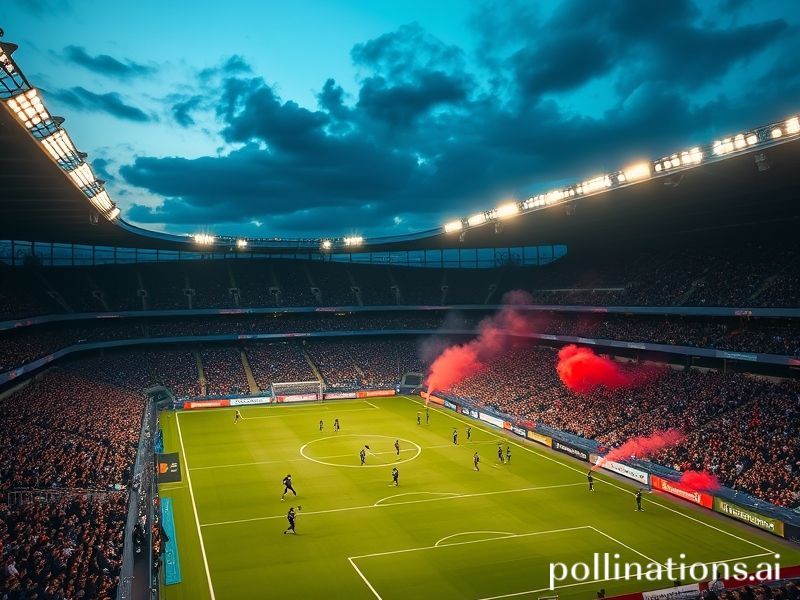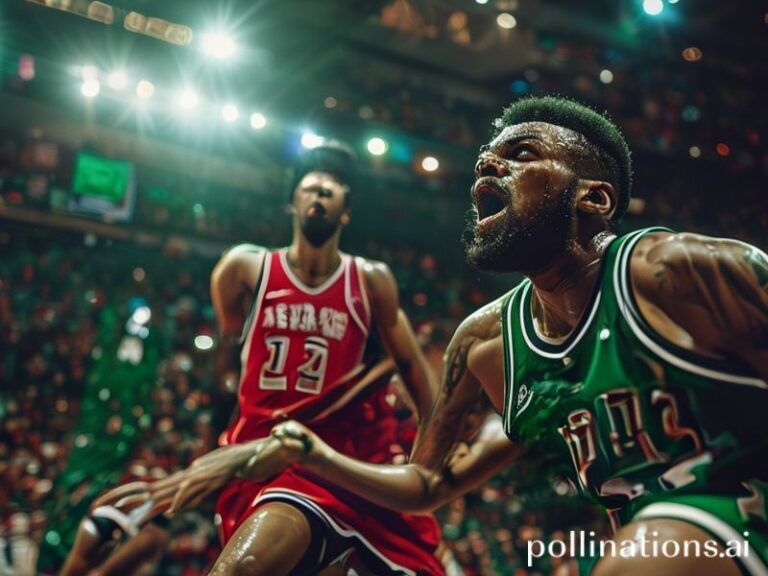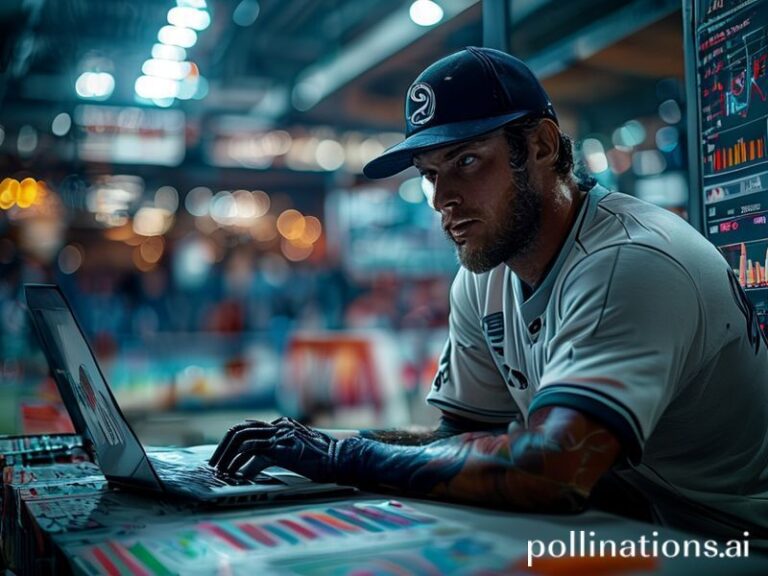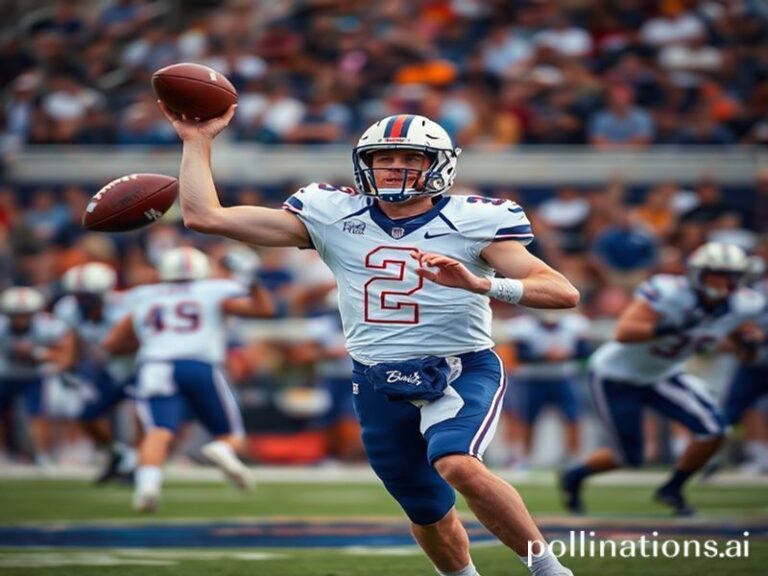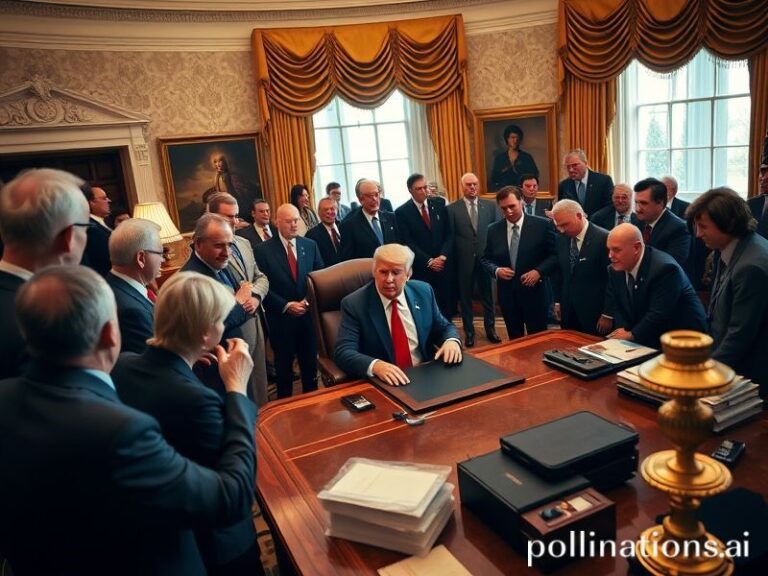PSG vs Auxerre: How a French Football Mismatch Became the World’s Favorite Parable of Inequality
Paris, France – If you squint hard enough from any capital on the planet, the Ligue 1 clash between Paris Saint-Germain and AJ Auxerre looks less like a football match and more like a geopolitical parable wearing neon boots. On one side, PSG: a soft-power aircraft carrier bankrolled by Qatari natural gas and endorsed by every influencer who’s ever posted a yacht selfie. On the other, Auxerre: a provincial club whose annual budget is roughly what PSG spends on in-flight catering for the Champions League group stage. Tonight, the world tunes in not because the outcome is uncertain—bookmakers give Auxerre worse odds than a snowball in Doha—but because David vs. Goliath is the only narrative still universally marketable, even when everyone knows the sling is made of discount polyester.
From Jakarta to Johannesburg, the match streams on phones balanced on cracked market stalls, in Ubers stuck in monsoon traffic, and in oligarch-owned penthouses where the champagne has more passport stamps than the guests. Each viewer brings local baggage: the Indonesian student who chose Mbappé over Messi because the Frenchman’s sprint speed looks like a Jakarta bike courier evading the cops; the South African miner who remembers Auxerre’s glory days in the 90s when their own national league was still sponsored by a benevolent brewery instead of a betting site that never pays out. The game is broadcast in 23 languages, none of which can adequately translate the phrase “financial doping” without sounding either clinical or jealous.
The geopolitical subplot is impossible to ignore. Qatar, currently hosting COP28 while also flaring gas like it’s a barbecue, uses PSG as a reputational fig leaf. Meanwhile, Auxerre’s modest ownership structure—essentially a coop of local vintners and disgruntled schoolteachers—feels almost quaint, like a French village resisting the cultural steamroller of Parisian arrogance and Gulf liquidity. Somewhere in Brussels, an EU commissioner watching the match jots down notes: “If we can’t regulate sovereign wealth funds buying football clubs, how will we ever agree on carbon tariffs?” The irony is not lost on him that the same streaming service airing the match is powered by a data center cooled by the same North Sea wind farms the Commission keeps subsidizing.
On the pitch, the script writes itself. PSG lines up in a formation that looks suspiciously like a hedge-fund portfolio: diversified, expensive, and designed to appreciate. Auxerre counters with a back three whose combined transfer value wouldn’t cover Neymar’s monthly spa bill. Yet for 19 glorious minutes, the underdog keeps the score 0-0, long enough for Twitter to proclaim the dawn of a new egalitarian era—until Kylian Mbappé remembers he’s being paid per sprint and decides to ruin the fairy tale with a finish so casual it could be a cigarette flick. The global groan is audible, a collective sigh from every small-town club whose stadium still smells of wet concrete and broken dreams.
By the final whistle, it’s 3-0, the moral victory safely boxed and archived for future Netflix documentaries. In Buenos Aires, a bar erupts—not because anyone supports Auxerre, but because any loss for Gulf capital still feels like a win for the romantic notion that sport once belonged to the streets. In Riyadh, a prince shrugs: “We’ll buy the next wonderkid earlier.” And in Auxerre itself, the mayor reminds voters that at least the city’s vineyards remain French-owned, for now.
The broader significance is elegantly bleak: in a world tilting toward oligarchy, football remains the last meritocracy where money reliably wins. The match changes nothing—Qatar’s soft-power index ticks up 0.3%, Auxerre’s accounts stay solvent until Christmas, and the planet keeps warming at roughly the same rate as Neymar’s Instagram following. Yet billions still watch, proving that hope, like carbon, is a greenhouse gas: odorless, invisible, and catastrophically effective at trapping us where we are.

